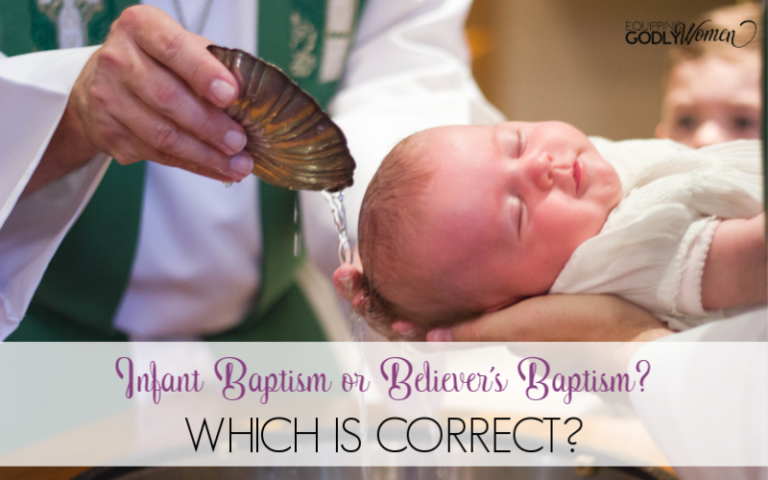Sola Fide: Is Faith Alone Enough for Salvation?

Is sola fide (faith alone) enough for salvation?
Growing up, I was taught that it was.
I remember learning Romans 10:13, which promises us:
“Everyone who calls on the name of the Lord will be saved.”
I was taught that it didn’t matter what we did or how bad our sins were. As long as we said the Sinner’s Prayer, we were good to go.
If we did good works (and we should!), that was great. But all our works, merits, and accomplishments had absolutely no bearing on our salvation.
We could commit the worst crimes, and it wouldn’t matter. God would still love us, forgive us, and let us go to Heaven to be with Him someday.
While there is certainly a great deal of truth to this (God can and does love us and forgive us no matter what), the way sola fide is presented can often miss the mark.
The truth is: The Bible is full of verses that say our works DO matter.
We can’t earn our salvation. Faith is necessary. But faith alone isn’t enough.
*This post contains affiliate links, which means if you make a purchase, I may make a small commission at no additional cost to you. This helps cover the many costs of running this site and allows me to help provide for my growing family. Thank you!
What is Sola Fide? (Meaning and Definition)
One of the five solas of the Protestant Reformation, sola fide means faith alone. The doctrine of sola fide teaches that Christians receive justification by faith alone, and that we cannot earn our salvation through good works.
Catholic priest turned Protestant reformer Martin Luther taught sola fide in response to his belief that the Roman Catholic church was erroneously teaching a works-based salvation (with the sacraments) that did not line up with Scripture.
Since then, sola fide has become one of the core doctrines of the Reformed church and many other Protestant denominations.
The five solas of the Protestant Reformation are sola fide (faith alone), sola scriptura (Scripture alone), sola gratia (grace alone), solus Christus (Christ alone), and soli Deo gloria (glory to God alone).
Why Protestants Believe in Justification by Faith Alone (Sola Fide)
Because “Protestant” refers to a group of various Christian denominations started as a result of Martin Luther’s Protestant Reformation, there is no one official Protestant position.
That being said, Protestant denominations who do believe in justification by faith alone (sola fide) typically base their beliefs on Bible verses such as:
- Ephesians 2:8-9: “For it is by grace you have been saved, through faith—and this is not from yourselves, it is the gift of God—not by works, so that no one can boast.”
- Romans 3:23: “and all are justified freely by his grace through the redemption that came by Christ Jesus.”
- Romans 3:28: “For we maintain that a person is justified by faith apart from the works of the law.”
- John 3:16: “For God so loved the world, that he gave his only Son, that whoever believes in him should not perish but have eternal life.”
- John 5:24: “Very truly I tell you, whoever hears my word and believes him who sent me has eternal life and will not be judged but has crossed over from death to life.”
- John 6:29: “Jesus answered, ‘The work of God is this: to believe in the one he has sent.'”
- Acts 10:43: “All the prophets testify about him that everyone who believes in him receives forgiveness of sins through his name.”
- Galatians 2:15-16a: “We who are Jews by birth and not sinful Gentiles know that a person is not justified by the works of the law, but by faith in Jesus Christ.”
- Philippians 3:9: “and be found in him, not having a righteousness of my own that comes from the law, but that which is through faith in Christ—the righteousness that comes from God on the basis of faith.“
That’s a lot of verses that say we receive justification, salvation, or eternal life through faith!
And we can all agree: Our salvation is a free gift from God that none of us deserves. (Romans 6:23)
However, and this is important, none of these verses say that we are saved by faith alone (sola fide).
The Only “By Faith Alone” Verse in the Bible
There is only one verse in the entire Bible that contains the phrase “by faith alone” and it doesn’t support sola fide.
James 2:24 says, “You see that a person is considered righteous by what they do and not by faith alone.”
Yes, we are justified through faith. No, we cannot earn our salvation.
But nowhere does the Bible teach we are saved by faith alone.
In fact, there are just as many Bible verses that refute the idea of justification by faith alone (sola fide).
Bible Verses that Refute Justification by Faith Alone (Sola Fide)
As a child, I simply believed what my Baptist church pastor and Sunday School teachers taught me about theology and the gospel.
However, once I started reaching sola fide for myself, I was surprised to see how many Scripture verses clearly refute the doctrine of justification by faith alone. For example:
Matthew 19:16-17
“Just then a man came up to Jesus and asked, ‘Teacher, what good thing must I do to get eternal life?’
‘Why do you ask me about what is good?’ Jesus replied. ‘There is only One who is good. If you want to enter life, keep the commandments.'”
You could argue that this command was given under the Old Covenant, before Jesus’s death and resurrection fully established the New Covenant we’re under today (which is true). However, there’s more…
Matthew 19:29
“And everyone who has left houses or brothers or sisters or father or mother or wife or children or fields for my sake will receive a hundred times as much and will inherit eternal life.“
This verse highlights the importance of not taking one single verse out of context, even if it’s meaning seems simple and straightforward. No Christian denomination is teaching that salvation come by abandoning your family or property… even though that’s what this verse says.
Matthew 25:31-46
“Then he will say to those on his left, ‘Depart from me, you who are cursed, into the eternal fire prepared for the devil and his angels. For I was hungry and you gave me nothing to eat, I was thirsty and you gave me nothing to drink, I was a stranger and you did not invite me in, I needed clothes and you did not clothe me, I was sick and in prison and you did not look after me…’
“Then they will go away to eternal punishment, but the righteous to eternal life.” (vv. 41-43, 46)
In this parable, Jesus is describing the final judgment that will happen at the end of the Earth. Here, the sheep and goats are separated, not by what they believe, but by the actions they did while on Earth.
Romans 2:6-7
“God ‘will repay each person according to what they have done.’ To those who by persistence in doing good seek glory, honor and immortality, he will give eternal life.“
The apostle Paul wrote these verses (and the ones to follow) after the New Covenant was thoroughly established. They still apply to us today.
Romans 2:13
“For it is not those who hear the law who are righteous in God’s sight, but it is those who obey the law who will be declared righteous.“
Simply hearing God’s Word isn’t enough. We have to obey it.
James 2:14, 17
“What good is it, my brothers and sisters, if someone claims to have faith but has no deeds? Can such faith save them? … In the same way, faith by itself, if it is not accompanied by action, is dead.“
Simply claiming to have “faith” isn’t enough. Real faith naturally produces good works. If your faith isn’t producing good works, it isn’t real faith.
James 2:19
“You believe that there is one God. Good! Even the demons believe that—and shudder.”
It isn’t enough to simply believe God exists. Even Satan and his demons believe that, and they certainly aren’t going to Heaven or enjoying a close relationship with Jesus Christ.
James 2:21-22, 24, 26
“Was not our father Abraham considered righteous for what he did when he offered his son Isaac on the altar? You see that his faith and his actions were working together, and his faith was made complete by what he did… You see that a person is considered righteous by what they do and not by faith alone… As the body without the spirit is dead, so faith without deeds is dead.”
Salvation doesn’t come through faith alone (apart from works). It comes from faith and works working together.
It’s very easy to find Bible verses that seem to support the doctrine of justification by faith alone (sola fide). Yet, we must be careful to read the Bible as a whole — not pick individual verses out of context.
When you read the Bible as a whole, a completely different picture begins to emerge.
Yes, we are saved through faith, but not faith alone (sola fide). If our faith is real, it will naturally produce good works. Without good works, our faith is dead, hollow, and worthless.
What Do Catholics Believe About Salvation?
Because many people mistakenly believe that the Catholic Church teaches that people are saved by their works (not justified by faith alone), I met with a Catholic priest for clarification. Here’s what I found.
Contrary to popular belief, Catholics do not believe that people can be saved by their works, apart from faith.
In fact, the Catholic Catechism expressly rejects this idea:
“Believing in Jesus Christ and in the One who sent him for our salvation is necessary for obtaining that salvation. ‘Since ‘without faith it is impossible to please [God]’ and to attain to the fellowship of his sons, therefore without faith no one has ever attained justification, nor will anyone obtain eternal life ‘but he who endures to the end.”” (CCC 161)
Catholics believe we are saved through faith in God, but not just any kind of faith. We must have an active, living faith.
It doesn’t matter whether these works are small or large, many or few, because it isn’t our works that save us.
Rather, if we truly believe in God and seek to live for Him, we will naturally produce good works as a result.
The Catechism of the Catholic Church also states:
- “Faith is an entirely free gift that God makes to man” (CCC 162)
- “Salvation comes from God alone” (CCC 169)
See Also: What is Purgatory? What are Indulgences?
Francis Chan on Faith vs. Works
It isn’t only Catholics who believe that true faith results in good works, either.
Francis Chan is one very well-known Protestant pastor and bestselling author who has also debunked the doctrine of sola fide publicly from the platform.
(Start at 29:30 for the relevant — and sometimes humorous! — talk about faith and works.)
True Faith Means Good Fruit Will Follow
So what did I learn about the meaning of sola fide? At the end of the day it turns out that my original beliefs were a great place to start. What is true about sola fide is that works don’t save us — we are only saved by God’s grace.
But this doesn’t mean that works don’t matter. True faith in Jesus and love for Him means that our lives will show that love to others, just like His life did.
Our works are a really great indication of what kind of faith we have — and if we even have faith at all.
And really, doesn’t this just make sense? If you really, truly believed in Jesus, wouldn’t you naturally want to follow him? And of course, by follow Him, I mean keep his commandments and teachings, an outward expression of your inner faith that leads to salvation.
I’d love to hear your thoughts and opinions! What did you grow up learning about the meaning of sola fide? Have your beliefs and your faith changed over time? Leave me a note (or a book 🙂 ) in the comments section below!

Enjoyed this post? Don’t miss the rest of the posts in the series!
The Day I Realized My Religion Got it Wrong
10 Common Catholic Church Myths that Critics Believe
Is the Eucharist Really Just a Symbol?
Who has the Ultimate Authority? A Biblical Look at Sola Scriptura
A Brief Look at the History of Christianity
What All Christians Should Know About Priests, the Pope and Confession
What Do Catholics Really Believe About Mary, Saints and Statues?
Infant Baptism or Believer’s Baptism? Which is Correct?
What is Purgatory? What are Indulgences?
Why Do Catholics….? Honest Answers to Your Burning Questions







If you have faith in God, nothing else matters because he is all you need.
You mean… you could say you believe in God but live however you want to and still go to Heaven?
Brittany, I hope you don’t mind a guy responding. I am a retired pastor and chaplain and I found your blog interesting. I can tell that you have a sincere heart with good noble intentions. However, when we study God’s Word, we look at it as a whole and also study the context carefully.
First, you’re correct that the words “faith alone” are not stringed together but once. However, there are at least 166 New Testament passages that say we’re saved by faith. The concept is there, even though these two words are not strung together. Also it was Jesus Himself who made it abundantly clear not only in John 3:16, but also John 5:24 that we are just saved by faith. In John 6:40 the “work of God,” is for us to believe in the One whom He has sent.
You brought up Romans 2. Again, we have to read in context. Paul is addressing those who think they can get into the Kingdom by the Law and right living. He is basically saying that you have to live a perfect life. Then in the following chapter, he says, no one can do it. Paul is showing the contrast. In fact in John 5:24, Jesus says that all those who trust or believe in Him will not be judged!
You quote: “And behold, a man came up to him, saying, ‘Teacher, what good deed must I do to have eternal life?’ And he said to him, ‘Why do you ask me about what is good? There is only one who is good. If you would enter life, keep the commandments.‘” –Matthew 19:16-17. What is the context here? No one can keep the commandments perfectly. In fact, in the Sermon on the Mount, Jesus said if you even think these evils in your heart, you are already guilty. Jesus knew that this rich young ruler would never be saved by trying to keep the law. Jesus’ purpose was to show this man how sinful he really was. This young ruler was a religious and moral man. He was good enough to deceive himself and bad enough to damn himself. His “goodness” prevented him from knowing his badness.
Before a person is ready to be saved, he first must become lost. That is, he must recognize the lost condition of his soul (Romans 3:10-23). Before a man is ready for a cure, he must recognize how desperately sick he really is (Luke 5:30-32). The rich young ruler needed to understand the plague of his own heart (1 Kings 8:38). If Jesus was saying that everyone needed to keep all the law to be saved, He would have totally contradicted Himself and Paul in many passages of Scripture.
You mention: “And everyone who has left houses or brothers or sisters or father or mother or children or lands, for my name’s sake, will receive a hundredfold and will inherit eternal life.” –Matthew 19:29. Of course this follows up the “rich young ruler.” “And shall inherit everlasting life”: The other evangelists add, “in the world to come”, which is infinitely best of all. For this is an inheritance incorruptible, undefiled, which fades not away, reserved in the heavens, when all other inheritances are corruptible, defiled, fading and perishing. This passage is teaching reward in the coming life.
Then you refer to probably the most debate passage in the New Testament, in James chapter two. What people fail to realize is that this passage has to be understood in the context in which it was written. First James calls them “brethren” at least 19 times. He believes in their salvation. Also the demons believe and tremble because there is nothing they can do about their fate. Jesus didn’t die for them. James two is a “get to work” passage. James speaks of a “dead faith.” This doesn’t mean the faith doesn’t exist, just that it is useless. In fact, in Romans, Paul says Abraham was justified by faith but if it had been works, he would have something to brag about: “What then shall we say that Abraham, our forefather according to the flesh, has found? For if Abraham was justified by works, he has something to boast about, but not before God.”
Going back to James chapter two, James is saying that it’s one thing to be justified before God, but we also need to be justified before men by our good witness. We need a faith that works! I know that this passage is extremely easy to get confused about.
You made this comment at the end of your article: “Works don’t save us–faith does–but that doesn’t mean that works don’t matter. Instead, our works are a really great indication of what kind of faith we have–and if we even have faith at all.” I partially agree: works do matter but not in regard to salvation, but in regard to rewards. However, to judge someone as lost because their works don’t reflect salvation is condemned in Scripture (Matthew 7:1-2).
I guess the influencing factor was rereading the Gospel of John. He writes in chapter 20:20-21, “Therefore many other signs Jesus also performed in the presence of the disciples, which are not written in this book; but these have been written so that you may believe that Jesus is the Christ, the Son of God; and that believing you may have life in His name.” So this Gospel was written to lead folks to “eternal life.” In this twenty-one chapter book, there is no mention of Christian baptism, repentance of sins, just belief! After reading the Gospel of John, a light switch went off in my spirit. I began to realize that all glory goes to Jesus for our salvation! If I had any part in my salvation (works), then both Jesus and I could receive credit for eternal life! However, all glory, honor and power goes to Jesus alone! And yes, the teaching of “faith alone,” is threaded throughout the Gospel of John.
I don’t think we should teach anything that would take away His complete glory in saving us. As a matter of fact, if we believe works save us too, where is the peace that passes all understanding? We will never know if we’re saved because we’ll never know if we’ve done enough in this life to make the cut! God Bless!
Hi, Lee! I totally get what you are saying and I do welcome and appreciate your kind and in-depth response! I definitely agree that we have to read the Bible as a whole, and that all glory goes to God alone. I too was raised to believe in “faith alone” (whether those two words are actually strung together or not).
Once I really dug into the Bible though, there are just SO many verses that talk about the things we need to DO. Not to earn our salvation – not at all – but to walk in it …? I honestly don’t know. I don’t know where the line is or how the “formula” works — I just know that God has done His part, but we have a part to play too. We can’t just sit back and let Him do everything while we just go on sinning and doing whatever we want like nothing has changed. That’s not the gospel either. Where the line is — I don’t know.
And I’d venture to say even people who believe in “faith alone” believe we have a part to play too. After all, don’t we have to “accept” or “believe” or “trust?” Those are all verbs – things we DO. God doesn’t force us to be saved. He offers it to us and we have to – at the BARE minimum – take the action of accepting. And hopefully repenting and on down the line. The question is just where the line is — and that, honestly, I don’t know.
Hi to both and all of you,
When I read the Bible all along the stories of the old and new testaments… I can see one message: “faith and action” goes together. And it seems to me it is an unchangeable aspect of God and humbly I think that I could be right or wrong, but what I read, what I see and what I believe is that works are a requirement once believing.
Lee, you said: “We will never know if we’re saved because we’ll never know if we’ve done enough in this life to make the cut!”… by the same token, if such thinking is applied to the faith alone approach then one could also ask: If it is by faith only, then how much faith will be enough to be saved?
It seems to me that is neither extreme. it does require both. We are saved by Grace – through faith – that require works/deeds or action. not by any amounts but by a sincere heart, honest intentions and with a desire to “do” our Lords will.
That’s a really good question. And while I do not believe we can earn our salvation AT ALL, the more I read the Bible, the more I see that action has to be a part of it somehow. I have no idea how, but simply believing alone can’t possibly be enough. I keep finding more and more Scripture verses that indicate otherwise.
great article again. I have not yet watched the video but will this evening. I was just explaining this to a non-catholic friend of mine. I see it that we are initially saved by our faith through the grace of God. But to maintain that salvation we will grow in our faith in Him and in doing so be led to do wonderful things in His name.
Thanks, Chelsea! And you should definitely, definitely watch the video. I love all of Francis Chan’s sermons and can’t recommend them highly enough.
Not through works. It is a gift, you can not work for a gift. Romans 5:12-21, Romans 6:23, Romans 8:24, Romans 10:9-13 Before Jesus was crucified salvation was through works, but after his death it is THROUGH FAITH ALONE that you can be saved. The Bible makes that plain. As far as works, it is for a testimony to others that you are a changed creature (which God will bless and when you get to heaven expect crowns for it). But yes, I believe that a thief, murderer etc can still be saved (before & after crime). Look at the prisoner on the cross, he believed and Jesus accepted him into heaven, no good works, but he had faith. If it’s through works, why would Jesus have had to die? His sacrifice was enough. His blood is what covers our sins, we are all sinners, no matter how much “works” we do. His gift is given, we just have to accept with faith. There is no price for salvation, it was paid on the cross.
As Brittany wrote in her post: Martin Luther added the word “alone”. It’s not a conspiracy theory, but a fact that Luther himself wasn’t trying to hide. He just added it, it can’t be found in first translations. So the Bible doesn’t make that plain, Luther adds it.
There would be no salvation had Christ not died for us, that’s true. But it doesn’t guarantee automatical salvation to anyone who believes. His sacrifice is what makes salvation possible, but we have to be worthy of it.
Some people were not born into Christian families, some never had the oportunity to learn about Jesus. So what would happen to them if we were saved by faith ALONE? (it’s not a hypothetical question, I’m really interested in what Protestants think about this)
Also, the man on the cross next to Jesus says: “We are punished justly, for we are getting what our deeds deserve. But this man has done nothing wrong.” He recognizes in that moment that his works were evil, but he doesn’t have a chance to change that. Had he lived, I believe he would stop what ever wrong things he was doing. Jesus also says on multiple occasions when people ask him for forgivness: “Now go, and sin no more!”
Jesus said to her, “Neither do I condemn you; go your way; from now on sin no more”
Ever noticed that EVERY time Christ has told someone to go, and sin no more, or to not tell of what has happened, what has everyone done? They went and told! Christ knew that would happen, but he still has forgiven them.
My point was that Jesus, after he forgives them, tells them to sin no more, and not: I forgave you and I will forgive no matter what you do, now go and do whatever you want.
For example
: Straightening up, Jesus said to her, “Woman, where are they? Did no one condemn you?” She said, “No one, Lord.” And Jesus said, “I do not condemn you, either. Go. From now on sin no more.”
and John 5:14
Later Jesus found him at the temple and said to him, “See, you are well again. Stop sinning or something worse may happen to you.”
He clearly says that their fate depends on their actions. Of course, people aren’t sinless, and God forgives if we repent. But how can someone say that they are sorry for their actions, continue doing it and at the same time expect forgivness?
P.S. I really wish someone answers this for me: Some people were not born into Christian families, some never had the oportunity to learn about Jesus. So what would happen to them if we were saved by faith ALONE?
Sorry, Sara, there were so many responses I fell behind! I’m getting caught up now!
I noticed that too!! What is up with all of these people??? lol. (BUT that doesn’t defend your point though, bc no one your number of works matters at all. Only that you have the kind of faith that produces them)
To answer your question about what Protestants think–I think it’s the same as what the Catholic church teaches. That believe in Jesus is the “normative” way, but God isn’t confined to the box if He wants to work outside it. For example, someone who grew up in Africa who never, ever heard about Jesus but lived an upright life and did their very best and *would have* believed if given the opportunity, they could still get in. (But here in America, we don’t really have much excuse)
I’ve wondered the same before. Not so much lately as more and more I’m learning (after a couple of years of hard apologetic studies) that what REALLY, really matters… is love.
1 Corinthians 3 talks about all the wonderful things a believer could do (or know for that matter)… and he plainly says at the end (verse 13) “And now these three remain: faith, hope and love. But the greatest of these is love.”
also remember God has said that He has written His law in our hearts (Romans 2:15)
Finally – although I can’t exactly remember – I think the Bible also teach us that judgement is proportional (some how) to what we know.
So I tent to think that for people who hasn’t heard about our Lord Jesus Christ – or even those who to some extent have – the measure for their salvation is LOVE.
As it’s for us, at the end of the day is LOVE what counts. I must confess, know I rather want to move on the direction of (action) loving others rather than knowing more…
Hope it helps!
God bless!
I find your comment intriguing, especially after the simple and short explanation from Brittany on her search. Neyssa, you stated:
“THROUGH FAITH ALONE that you can be saved. The Bible makes that plain.”
I am not sure WHICH Bible you use, but there is not a single reputable translation that says that. Actually the Bible says the EXACT OPPOSITE of what you claim it says.
The ONLY PLACE in the whole Bible that the words ‘faith’ and ‘alone’ are together is in James 2. Let’s read it again:
“You see that a person is justified by works and NOT by FAITH ALONE.”
If I am a Bible believing Christian, Neyssa, what am I suppose to believe? Your claim, or the Bible? Sorry, but the Bible wins me over.
Actually the complete and proper definition, when taking ALL of scripture into account is:
We are saved by GRACE through Faith for Good Works. So, in the end, both faith and good works are essential/critical, but we are saved by Grace Alone.
true..i,like,it,dear!
Sorry it has taken me so long to respond!
Neyssa, NO ONE is saying that faith is earned through works. And no one is saying that someone sins can’t be forgiven and still go to Heaven. What we are saying is that it isn’t enough to just believe. After all, even the demons “just believe.” Satan “just believes.” Are they Christians then? If that’s all it takes? 🙂 Or is there a possibility that simply believing Jesus is who he says he is isn’t enough?
To give another analogy: Say you give me a free gift of a house plant. You give it to me no strings attached. I accept the plant and sit it in my window, but then just leave it there and don’t touch it again. Eventually, the plant will die. Yes, it was free and no strings attached, but it does come with a responsibility to take care of it if I want to keep it alive and well. (Don’t ever give me a plant. It really would die 🙂 )
Also, you listed Romans 8:28, which says “For in this hope we were saved. But hope that is seen is no hope at all. Who hopes for what they already have?” This verse says we are hoping for something we don’t already have. In other words, maybe we don’t already “Have” salvation. We are given the *option* of salvation, but it isn’t fully ours yet.
Philippians 2:12 says: “Therefore, my dear friends, as you have always obeyed—not only in my presence, but now much more in my absence—continue to work out your salvation with fear and trembling” — How can we “work out” our salvation if we already have it? Why would we have “fear and trembling” if we were already assured salvation? Some food for thought 🙂
Did you watch the video??? (If not–go do it!) 🙂
I completely agree with every bit of this post. 🙂 if you say you have faith, but if is not visible in your life, that is no real faith at all! Now, of course, we are all on a journey, and can’t judge someone for not being farther along than you, but still, if you say you have faith yet don’t have any desire to follow God, you really need to question if that faith is real.
Agreed! It doesn’t matter if you do one good deed or a hundred good deeds. It matters the direction you’re headed in.
It should be noted that the direction is Christ, not good deeds. Just as faith without good deeds is dead, also good deeds without faith gets you no where.
Yes, yes, of course 🙂
I love Francis Chan! I stand in the belief that I can’t work my way to heaven, but sincere faith will produce the right works in me. Like in the marriage analogy, a sincere devotion to my husband will lead me to love him, serve him, be faithful in my marriage, spend time with him… If I were to discontinue doing these things, I would still be married to him, but our relationship would deteriorate.
In this day and age, the weeds and the wheat are growing together. And the Master has said to let it be until harvest time. We can’t possibly determine whether another person is having “marriage problems” with the Lord but still saved, or wasn’t saved at all and it was lip service? Or are they doing everything to look saved but are not? We can only look in our hearts and choose to let our faith and our works line up as we follow Him.
Agreed. We have no idea. But we can always examine ourselves and try to do our best!
True faith means that the fruit of your spirit will bear good fruit. Faith and works are mutually tied together. Thank you for this post.
You are welcome! Thank you for your comment 🙂
You are right Sarah!
I’ve done a lot of research on this topic. Soteriology is my primary area of research. I come at it from a strictly biblical view, not one of man-made theologies or tradition like most protestant and Catholics do.
Looking at the soteriology of the prominent Protestant churches and Catholic Churches, none seem to line up with that of scripture. They like to read their own theologies into scripture to make it fit and make sense, rather than just looking at scripture and allowing it to speak for itself.
Some of my writings on Soteriology. I thought some of yall might be interested in some of my research.
http://chaosman92.blogspot.com/2013/08/an-argument-for-grace.html
http://chaosman92.blogspot.com/2014/12/a-defense-of-eternal-security-and-grace.html
http://chaosman92.blogspot.com/2014/04/is-repentance-required-for-salvation.html
http://chaosman92.blogspot.com/2014/02/an-atheist-and-calvinist-tale-of-two.html
http://chaosman92.blogspot.com/2014/01/do-good-worksfruits-validate-salvation.html
http://chaosman92.blogspot.com/2014/07/the-greatest-of-all-protestant-heresies.html
http://chaosman92.blogspot.com/2013/12/faith-without-works-is-dead_2.html
I think all of us our trying to do our best to find out what the Scriptures really say, but the problem is that by just reading the Scriptures by themselves, we are all coming up with different answers! Next week I’m talking about the Scriptures and the Church. I hope you’ll check back!
Just wanted to say that I did glimpse through some of your posts; not enough time to read them thoroughly. I thought it was interesting and overall good, but missing certain important elements and critical understanding of Catholic language and soteriology. Not to hold it against you, but this is a common thing.
Words in Catholic theology have different meaning and nuances than what is immediately perceived by the average reader. It takes a good amount of learning (some years) to get the jest of the meaning.
One thing that creates a dilemma for your position, Nick, is that long before the Bible was put together, Catholics already believed what they believe now, regarding salvation. What I mean is that you missed the obvious. The New Testament books were CHOSEN out of about 500 that were going around at the time, because they fitted the Sacred Tradition of the Catholic Church—this means her teaching. In other words. The CC only chose the books that fitted perfectly with what she believed and taught 1600 years ago, and nothing has changed on that area of salvation.
Not to sound offensive, but I was truly amused by your statement:
“I come at it from a strictly biblical view, not one of man-made theologies or tradition like most protestant and Catholics do”
So, Nick, your soteriology was not formulated by you (a man), therefore it is NOT a man-made soteriology, but was given fully developed by God to you?
Truly, I find this perspective/insight most interesting. And if this is the case, it does sound a bit like the Qu’ran and how the Muslims also claim to have received it. I do see a lot of parallelism here.
Anyway, some food for thought.
“So it IS faith that saves us, but not just any kind of faith. It’s an active, living faith that goes on to produce good works. The works themselves don’t save you, but they do show what kind of faith you have.” These words sum it up perfectly!
It’s all in the details that mothers seek. When we take grace, faith, and works the whole explanations would be: We are saved by GRACE (alone) through Faith for Good Works.
One passage in scripture that proves the fallacy of amazing faith, but no works is in the final judgment of the goats and the sheep, where the exact opposite takes place. The goats had faith to produce miracles (signs) and prophesy in the Name of Jesus, but they were condemned, while those that did the Works of Mercy went to Heaven (Matthew 25:31-46).
This passage is generally misunderstood in the fact that present experiences with fake televangelists or corrupt Christians that use gimmicks are envisioned as the goats and are shoved onto the text. This is flawed exegesis, and it is not in harmony with the text because the goats know Jesus and are not lying before Him. The signs (miracles) were real and they were performed because they had enough faith to ‘move mountains’ (1 Cor 13:2), and were filled with the spirit and prophesied, yet there was one striking difference between them and the sheep; these sheep were charitable, had loved their fellow man (1 Cor 13:2).
Mat 25:35-40: “…for I was hungry and you gave me food, I was thirsty and you gave me drink, I was a stranger and …’ Then the righteous will answer him, ‘Lord, when did we see thee hungry and feed thee, or thirsty and give thee drink?…”
According to the text, they did even know the Lord Jesus, as we Christians ‘know Him’, because they had no knowledge of what every single Christian knows: “Whatever you do to the least of these, you do unto Me.”
Hope by bringing this extreme example helps in creating a better understanding of faith and love (good works).
Thanks, Lori 🙂
Interesting! This is very, very similar to my belief and what many Protestant churches I’ve attended teach as well. So, I don’t believe it is just Catholicism that teaches it.
As a Christian I truly believe you must have faith to believe and enter into heaven. However because of your faith you will strive to also work. Work at your behavior, work at keeping the commandments, reading your bible and growing in The Lord. You will work to help others and show them the love of Christ. Faith and works go hand in hand in my opinion.
Your understanding comes from the Arminianism understanding of scripture. The other one in Protestantism is Calvinism. For a basic comparison you can see this bi-column.
http://www.graceonlinelibrary.org/reformed-theology/arminianism/calvinism-vs-arminianism-comparison-chart/
Catholicism is much more in line with Arminianism than Calvinism.
Good article. I’ve never dived into deep Protestant theology (just the surface level things they taught on Sundays!) so this is helpful in clarifying things.
That was an awesome comparison, thank you for sharing!
Thanks, Misty. Hopefully the point I was trying to make came across alright!
Well, no, it’s not just a Catholic thing. But sometimes it’s easier to lump issues into groups a little bit just for ease of reference. (Only so many hours in the day!) 🙂
Another great Bible passage about faith and works is the parable of the vine.
John 15:“I am the true vine, and my Father is the vinedresser. 2 Every branch of mine that bears no fruit, he takes away, and every branch that does bear fruit he prunes, that it may bear more fruit. 3 You are already made clean by the word which I have spoken to you. 4 Abide in me, and I in you. As the branch cannot bear fruit by itself, unless it abides in the vine, neither can you, unless you abide in me. 5 I am the vine, you are the branches. He who abides in me, and I in him, he it is that bears much fruit, for apart from me you can do nothing. 6 If a man does not abide in me, he is cast forth as a branch and withers; and the branches are gathered, thrown into the fire and burned.
9 As the Father has loved me, so have I loved you; abide in my love. 10 If you keep my commandments, you will abide in my love, just as I have kept my Father’s commandments and abide in his love. 12 “This is my commandment, that you love one another as I have loved you. 13 Greater love has no man than this, that a man lay down his life for his friends. 14 You are my friends if you do what I command you.
Notice, Jesus is talking to those who ALREADY abide in Him. He warns that those who refuse to bear good fruit are thrown out and burned. He also states plainly that IF you keep His commandments, you will abide in His love. And you are His friend IF you do what He commands.
Another point to ponder: In virtually ALL passages discussing judgment, that judgment is based upon our WORKS. So we have to realize that when the Bible mentions believing in Jesus, it doesn’t mean a mental assent to Him. It means MUCH more. You “believe” in Him if you actually do as He commands.
Great passage. Works don’t MAKE us abide in Him, but they are a requirement to stay! Thanks for sharing 🙂